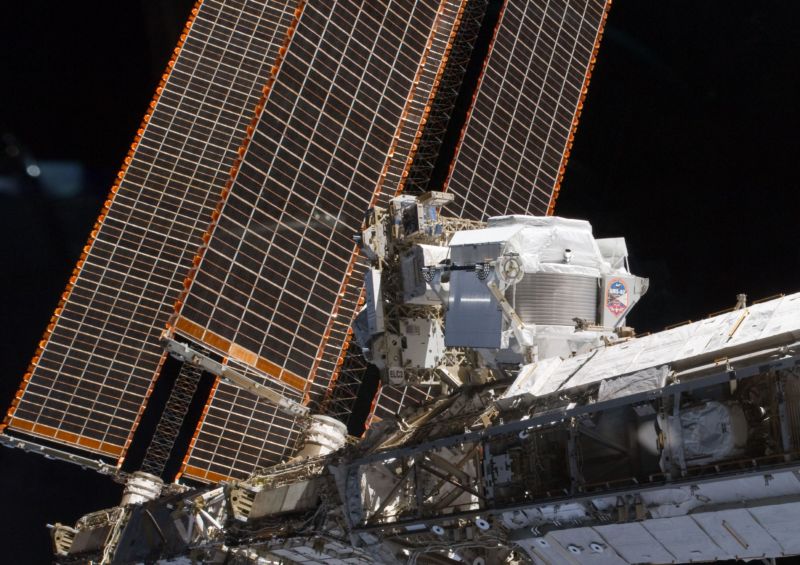The Alpha Magnetic Spectrometer has a problem with its cooling system
Ars Technica » Scientific Method 2017-03-24

Enlarge / A view of the Alpha Magnetic Spectrometer on the station. (credit: NASA)
Launched to the International Space Station in 2011 on the penultimate flight of the Space Shuttle, the Alpha Magnetic Spectrometer has quietly been collecting data during the last six years, observing more than 100 billion cosmic ray events. Although it has yet to produce any major scientific findings, physicists believe the steady accumulation of data will eventually yield insights about dark matter and other cosmic mysteries.
But for that to happen, the instrument has to continue to take data. In recent months, scientists monitoring the $2 billion AMS instrument have noticed an increase in the "degradation" of several of the pumps that operate the thermal cooling system on its silicon tracker. Three of the four pumps have now essentially failed, leaving just one functional cooling pump. Only one is required, but the cooling system has now lost all of its redundancy.
To remedy this problem, physicists associated with the experiment have begun working with a team at NASA to devise a long-range strategy that would extend the life of the AMS. According to one source, this could culminate in a "Hubble-esque" series of spacewalks to repair its cooling system.